Geology, Climate, Culture
“I want people to drink wine from all over the world so they can see how special Walla Walla is”
— Chuck
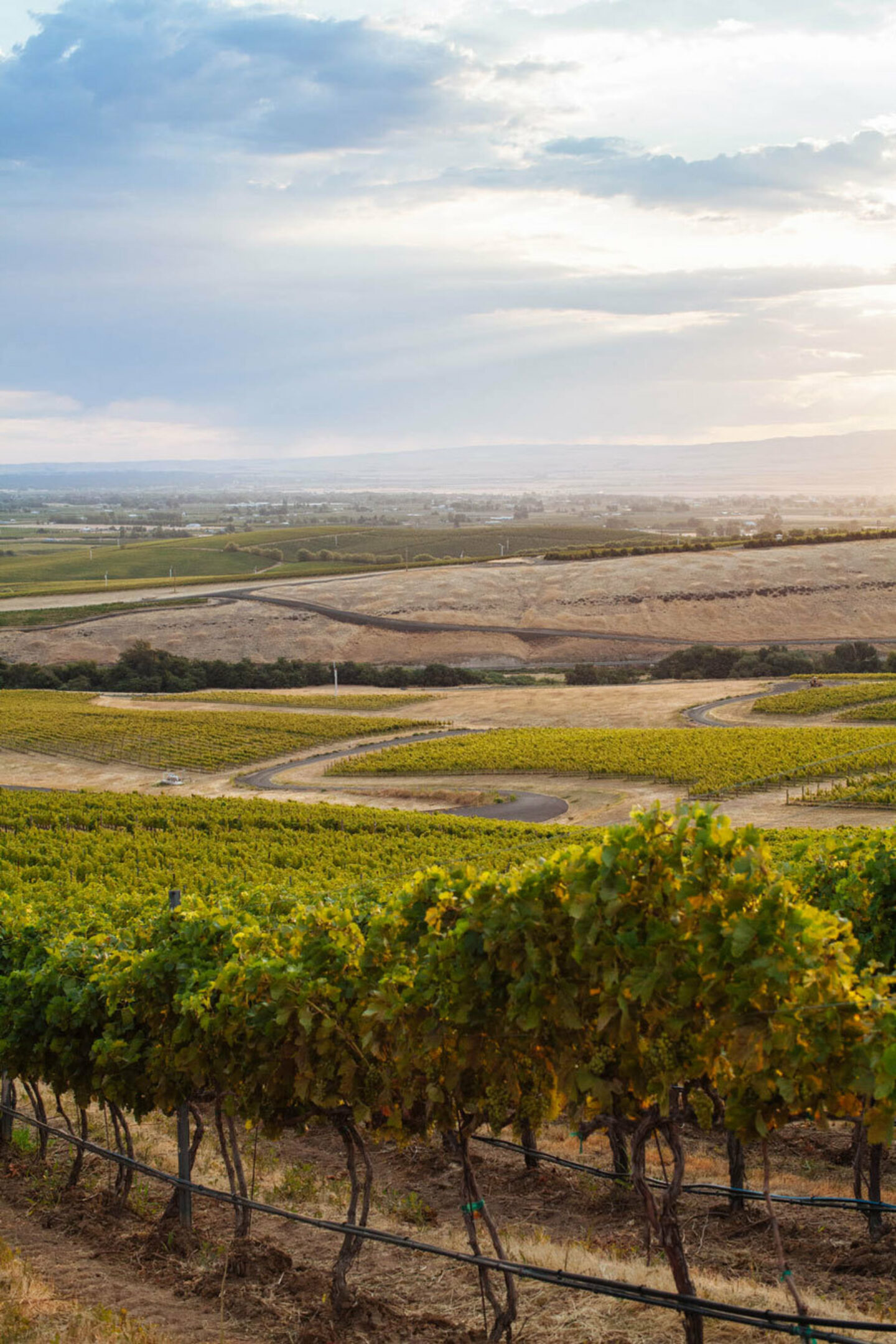
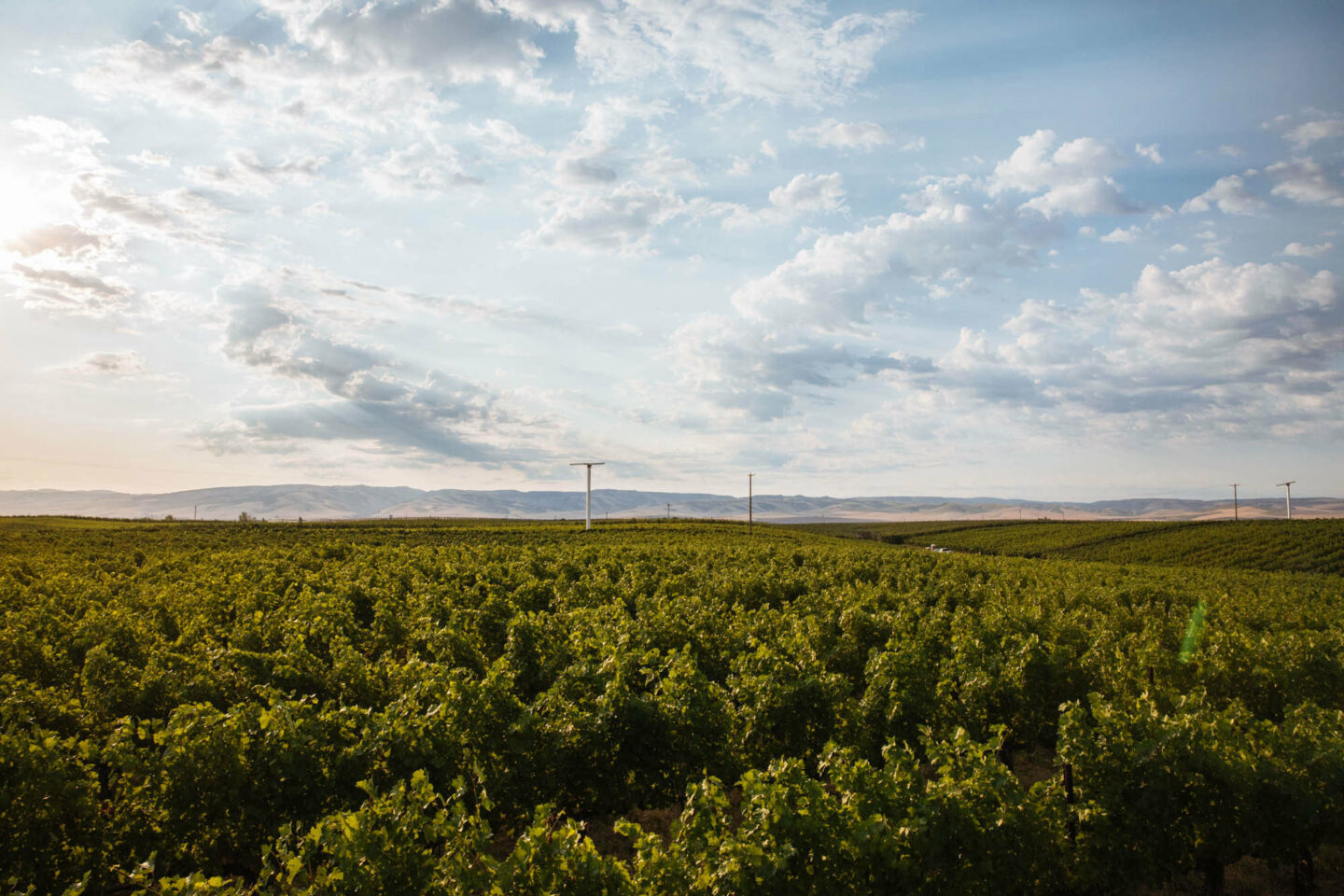
Back in the late 90’s, Chuck was the first person in the wine industry to recognize the significance of the cataclysmic lava flows and floods that scoured Eastern Washington ages ago, and Reininger was the first winery to use only Walla Walla fruit. We find this land fascinating—we think you’ll feel the same.
A flood of riches
Over 12,000 years ago, the world’s largest and most spectacular glacial outbursts washed over the Walla Walla Valley.
As the floodwaters receded they left behind the most valuable gems for viticulture: fine-grained glacial sediment and volcanic deposit. These “gems” enriched and empowered the remaining soil to become the fuel that fortifies every branch and berry in this region.
Warm Days, Cool nights
The summer sun shines here for 2 hours longer than California wine regions and does so for 300 days a year.
Walla Walla grapes bask in our abundant sunlight, which gives them time to fully ripen and ‘hang out’ for maximum flavor and complexity. Meanwhile, the cooler nights create a higher natural acidity, adding even more facets to the personality of the fruit. The latitude here parallels that of Bordeaux, but the longer growing season, aridity, and temperature differential lends as much variation to the vineyards as does the entirety of France.
Terroir that transcends
Capturing and enhancing the essence of each vintage by exposing its physical terroir—vine, subsoil, siting, drainage, microclimate—is the goal of many winemakers.
However, the nonphysical elements of the vineyard habitat are just as crucial for a true reflection of place. For Reininger, that means the culture of Walla Walla. The community of grape growers share knowledge, stories, and glasses of their finest while overlooking valley sunsets. Walla Walla remains a perpetually evolving renaissance of wisdom and sharing, the wine remains an art, and the winemakers remain the artisans. Some things never change.
OUR SELECT VINEYARDS
Creating Well-Balanced Wines
Reininger Winery sources fruit from a number of outstanding Walla Walla vineyards, including Pepper Bridge, Seven Hills, Birch Creek and XL Vineyards. Each vineyard produces fruit with a slightly different character, allowing Chuck to blend fruit to achieve the complexity and nuances he seeks in his wines. See more detailed information on individual vineyards below.
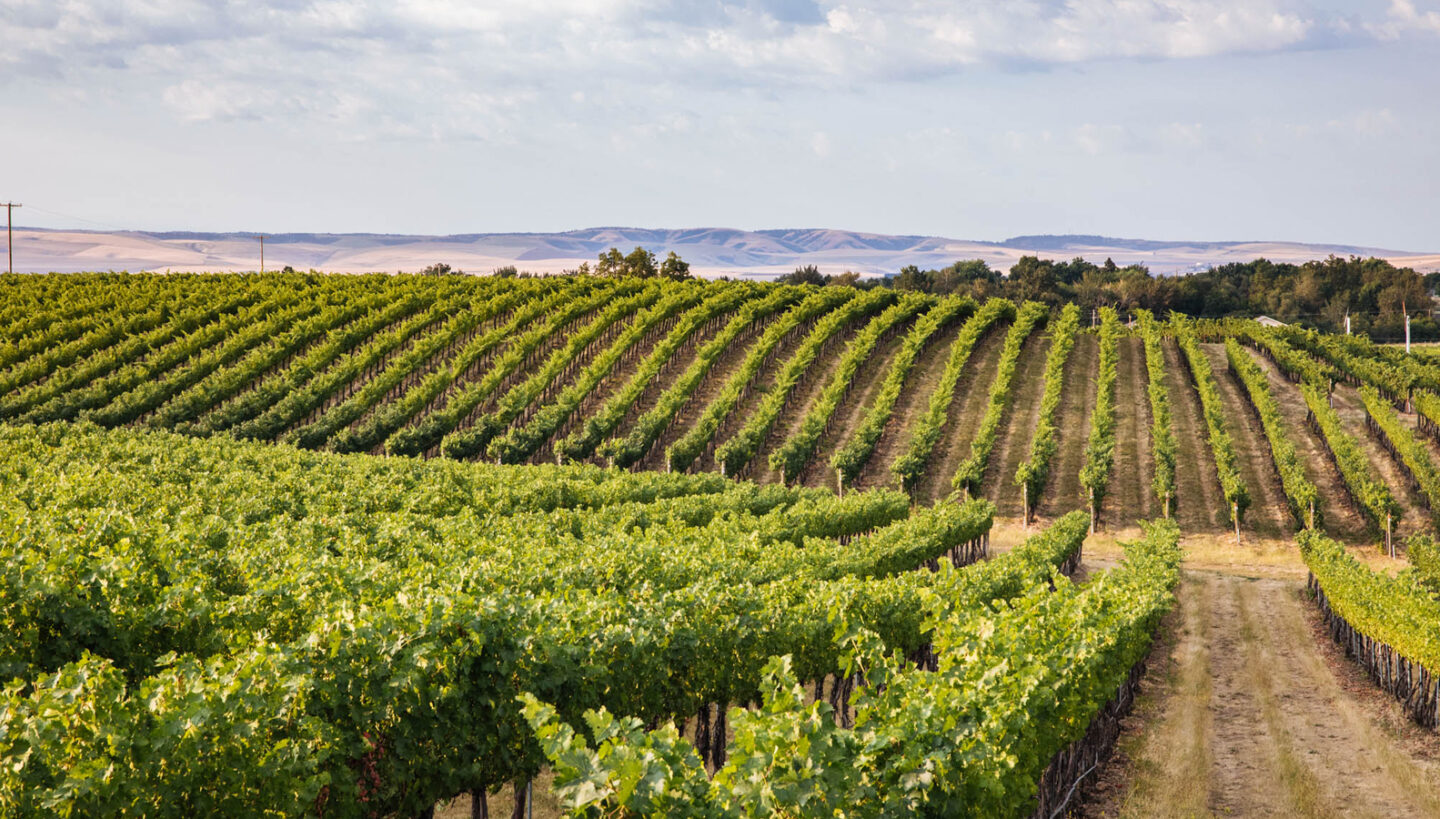
Pepper Bridge Vineyards
200 acres of silt loam, loess, and rich sedimentary deposits established in 1991. Sits atop an ancient glacial lake bed leftover from the Missoula Floods.
Grapes we use:
Cabernet Sauvignon, Merlot, Syrah, Malbec
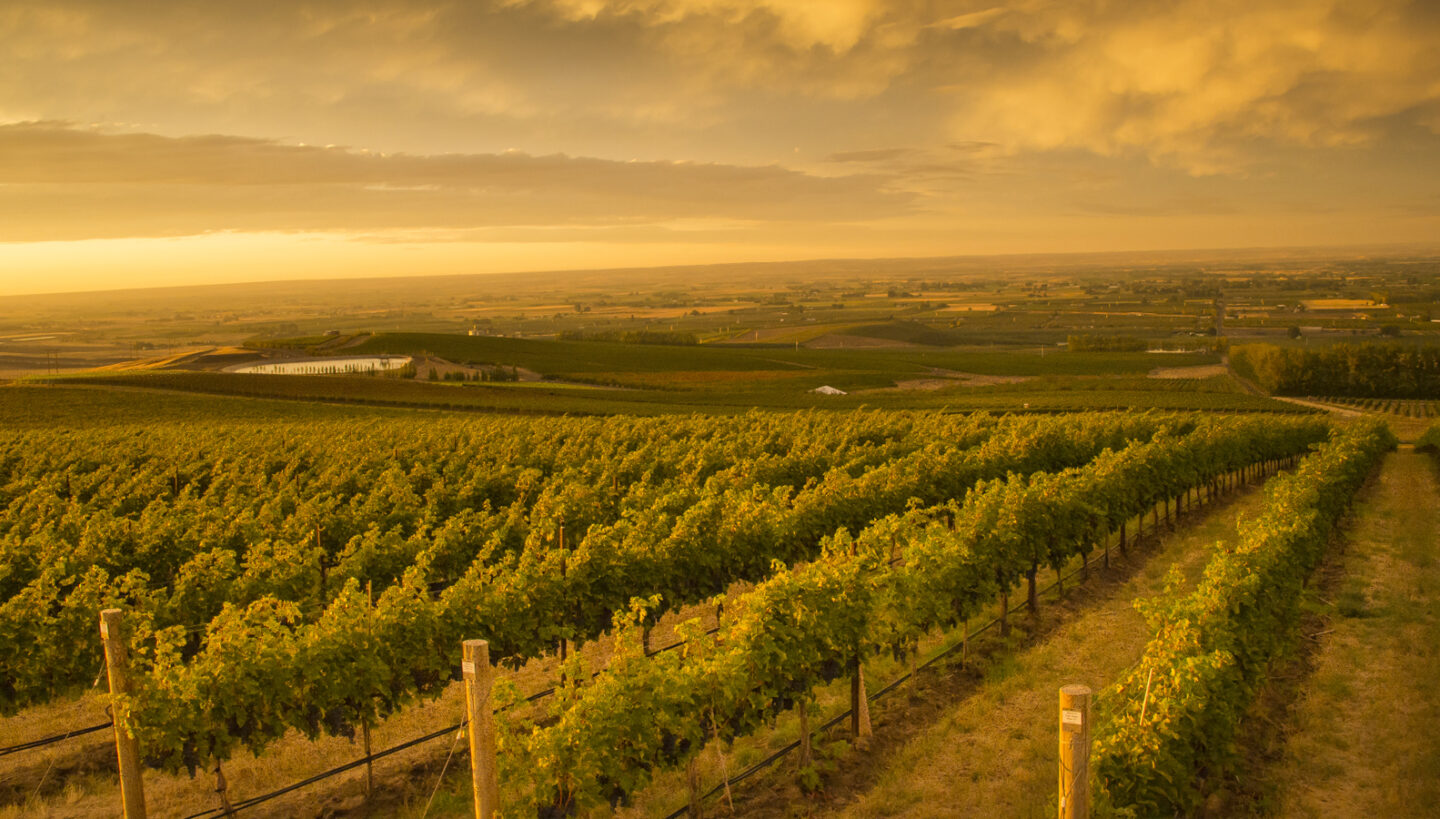
Seven Hills Vineyards
One of the oldest vineyards in the region, established in 1980. Named one of the top ten greatest vineyards in the world by Wine & Spirits in 2004.
Grapes we use:
Cabernet Sauvignon, Carmenère, Cabernet Franc, Merlot, Petit Verdot, Sangiovese, Syrah
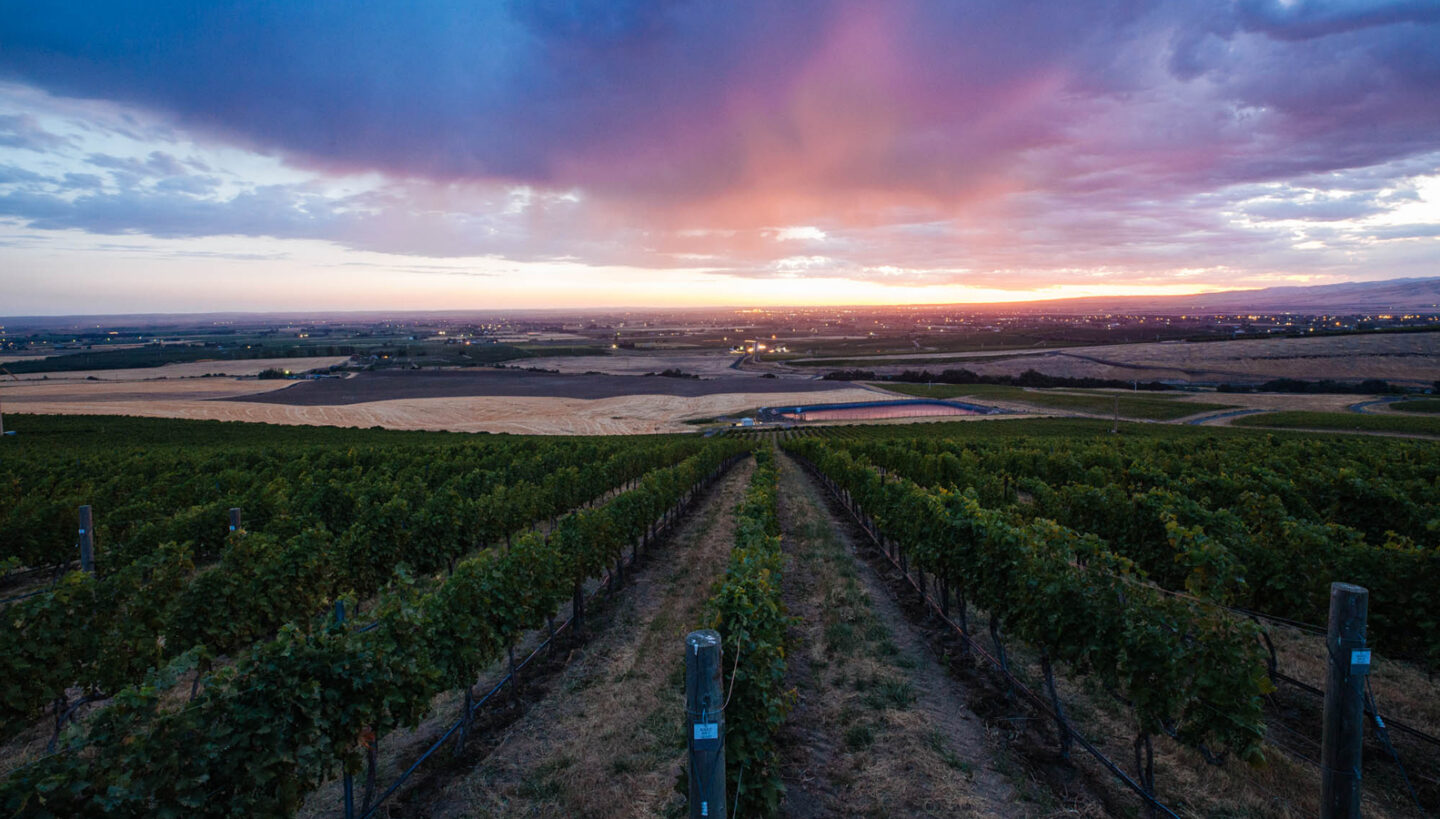
XL Vineyards
Higher elevation of planted grapes. Broken up into 24 uniquely treated blocks.
Grapes we use:
Cabernet Franc, Cabernet Sauvignon
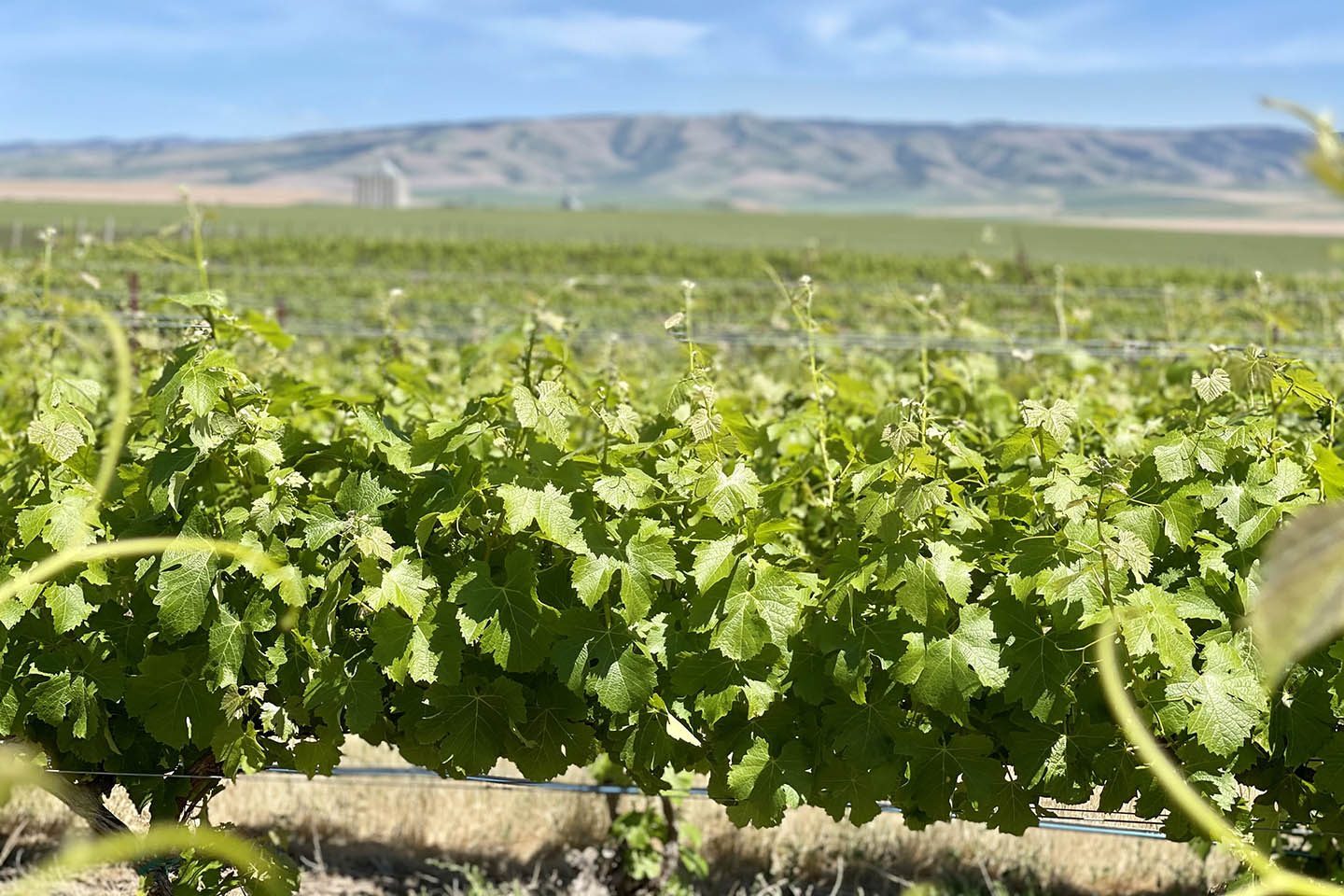
Birch Creek Vineyards
22-acre western-facing slope established in 1997. Oliphant and onyx soils provide great irrigation and air drainage.
Grapes we use:
Sémillon